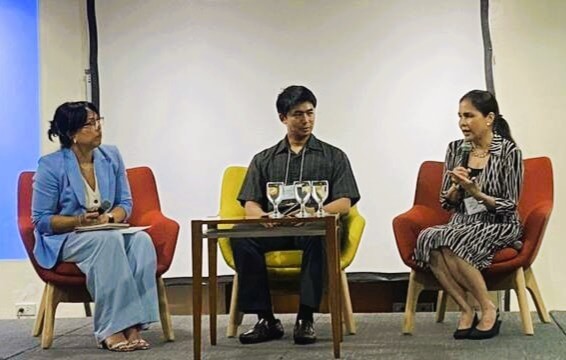

Driving the news:
PLDT and Smart participated in a high-level forum organized by the SEC and UNICEF to unveil findings from the study, “Investing in the Future: Why Children Matter in Publicly Listed Companies’ Sustainability Reports .”The research analyzed 2023 sustainability reports of 86 publicly listed companies (PLCs) in the Philippines.
The study revealed that while issues like child labor are commonly cited, broader dimensions of children's rights—such as participation, protection, responsible marketing, and environmental impacts—are often overlooked.
“PLCs in the Philippines are in a unique position to drive transformation by integrating children’s rights into their corporate sustainability strategies,” said SEC Commissioner Dr. Rogelio V. Quevedo.
“This helps eliminate exploitative practices, promote friendly policies, and foster an environment where children can thrive,” Quevedo added.
Between the lines:
PLDT and Smart, long-time partners of UNICEF, have been advancing child-centric reporting since 2019. The companies formally recognize children as key stakeholders, aligning their business impact assessments, cybersecurity measures, and online safety initiatives with children’s welfare.
“Children use our services—even if their parents make the purchasing decisions. They will eventually become our future customers,” said Melissa Vergel de Dios, PLDT and Smart’s chief sustainability officer. “Our sustainability commitment is our way of saying we care about their future.”
🔍 Key findings from the SEC-UNICEF study:
Few PLCs explicitly report on children’s rights, indicating a major gap in the current ESG landscape.
Child labor receives some coverage, but other areas such as youth engagement, digital safety, and environmental wellbeing are largely absent.
The need for businesses to align with global sustainability frameworks and the UN Convention on the Rights of the Child is growing.
PLDT and Smart’s ongoing efforts:
Sustainability reports since 2019 have documented efforts to protect children’s rights online and offline.
Development of a child protection platform to monitor and prevent the spread of child sexual abuse material.
Inclusion of youth representatives in materiality and impact assessments.
Regular audits of product marketing and supply chain compliance with child-friendly policies.
In 2024, PLDT reported zero cases of child labor in its Tier-1 suppliers and no substantiated complaints involving children in marketing.
Business case for child-inclusive sustainability:
Vergel de Dios emphasized that prioritizing child rights isn't just ethical—it’s smart business. Gen Z and Gen Alpha are increasingly values-driven and are more likely to engage with brands that advocate sustainability and inclusivity.
“Today’s children are tomorrow’s customers, employees, and leaders. Companies that engage them early—respecting their rights and championing their wellbeing—gain long-term competitive advantage,” she noted.
Global recognition:
PLDT ranked #2 globally in the Global Child Forum Benchmark Report 2024, earning a near-perfect 9.9/10 for integrating children’s rights across governance, workplace, marketplace, community, and environmental domains. It was also #1 globally in the technology and telecom sector.
The big picture:
UNICEF’s Carmen Gonzales Ortiz underscored that businesses influence children’s lives in various ways—from workplaces and marketing practices to community development.
“Children’s rights are embedded in the triple bottom line. When businesses create environments where children can thrive, they also strengthen families, communities, and economies,” Ortiz said. —Ed: Corrie S. Narisma
